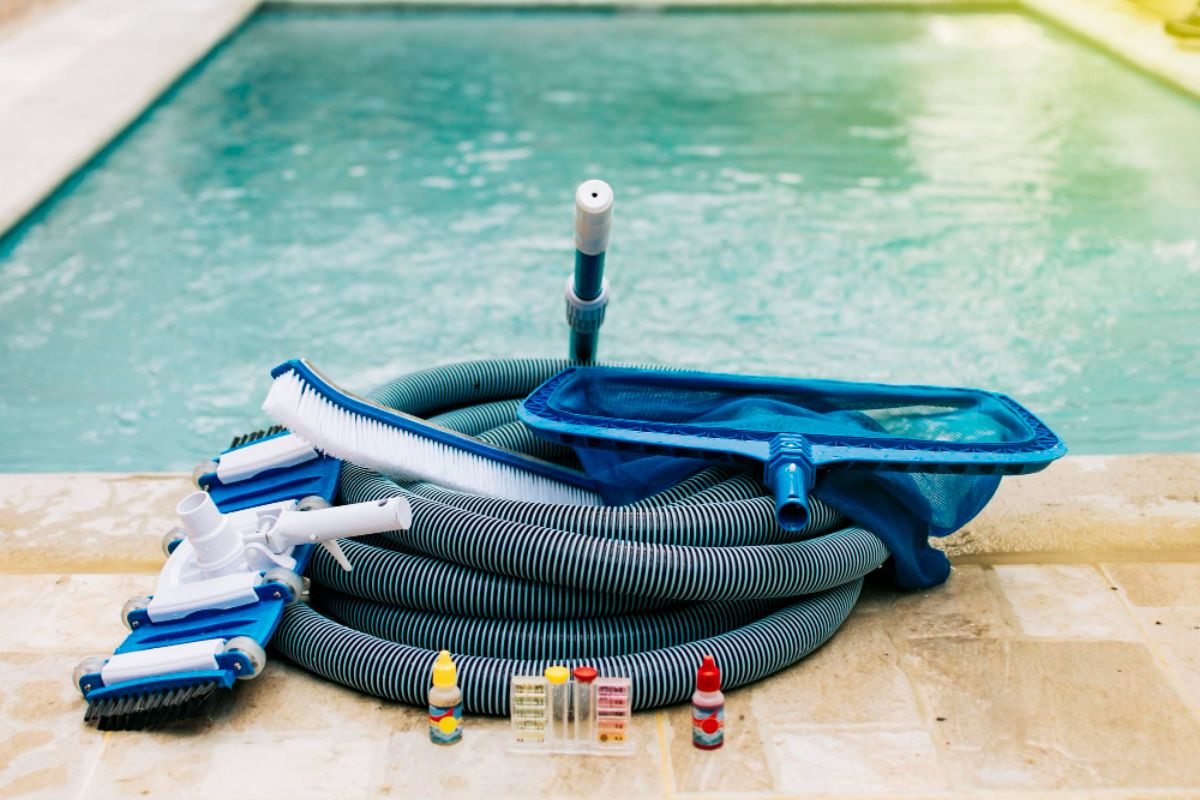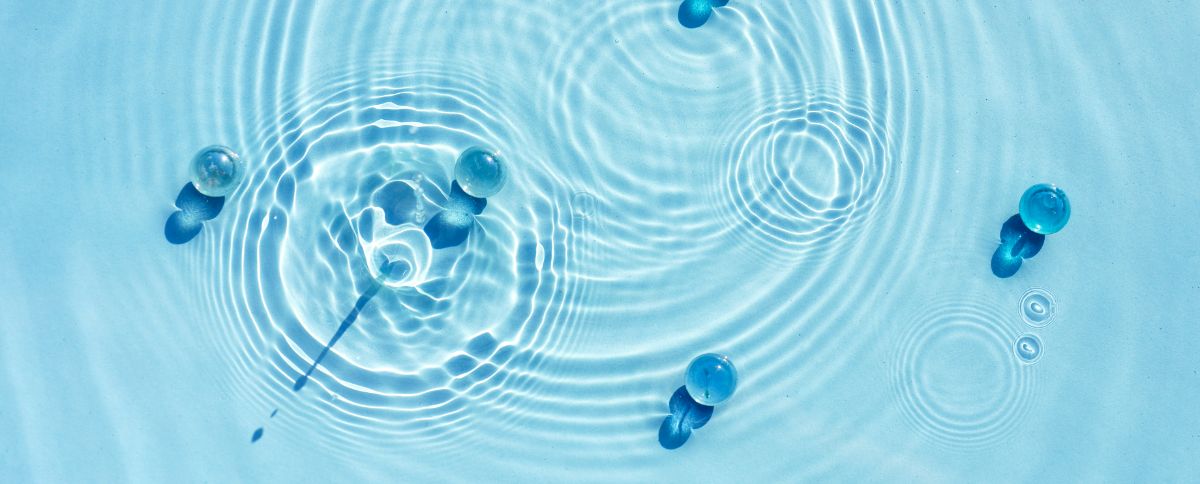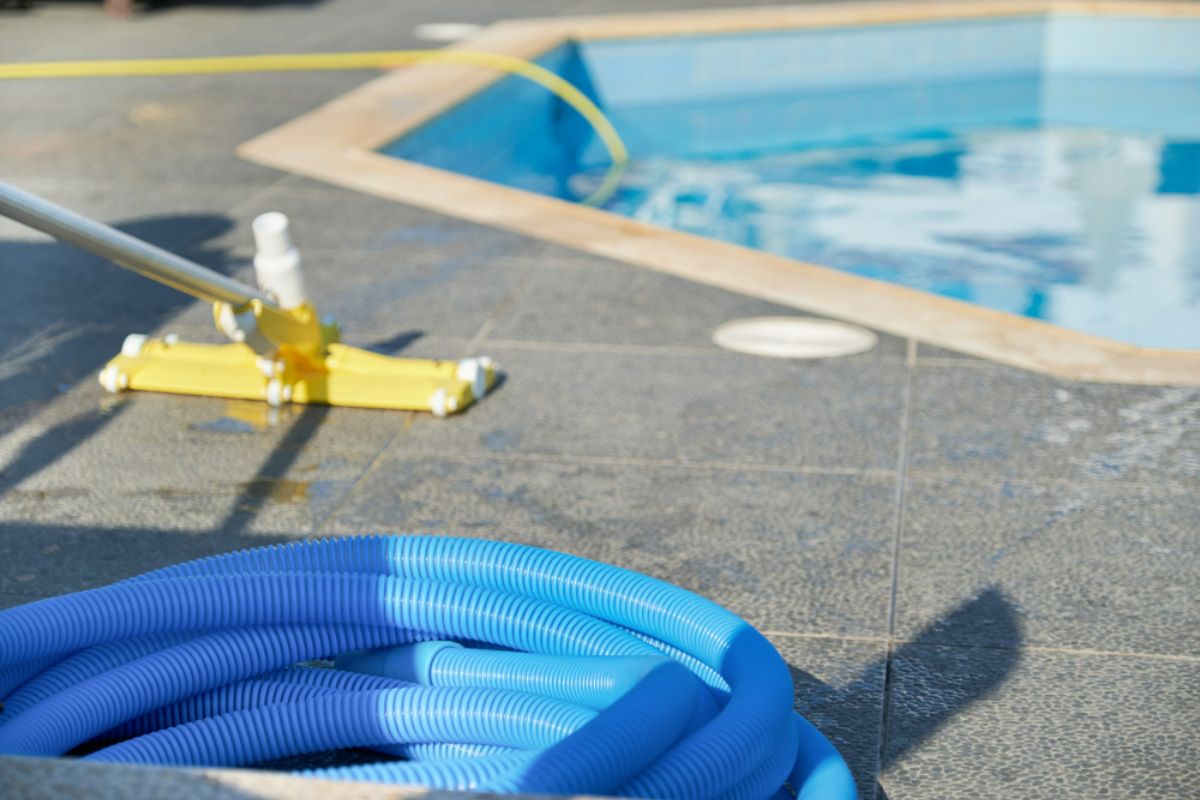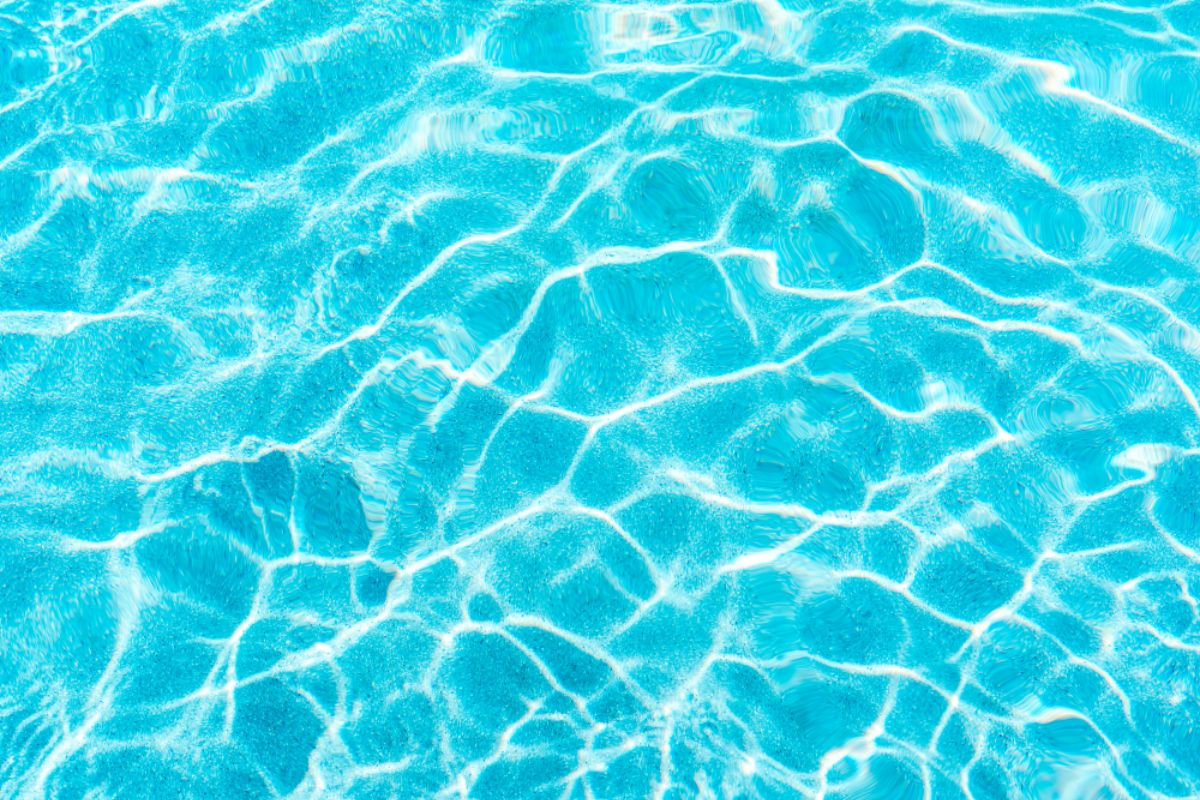What are the common mistakes everyone should avoid when using pool chemicals?
- Adding chemicals without testing the water first
- Shocking your pool during the daytime
- Running your pool filter and pump system for less than 8 hours daily
- Ignoring your pool’s calcium hardness
- Neglecting your pH and alkalinity levels
Swimming pools provide endless hours of fun and relaxation, especially during hot summer days. However, keeping a pool clean and safe requires the proper use of chemicals.
Maintaining a safe swimming pool is crucial for the well-being of everyone who uses it. Avoiding common mistakes when using pool chemicals is essential to ensure the safety of swimmers. By understanding what not to do, you can keep your pool in excellent condition and create a fun and safe environment for everyone.
This guide focuses on some of the most frequent mistakes made when using pool chemicals, providing tips to help you maintain a clean, safe, and enjoyable swimming experience.
Adding Chemicals Without Testing the Water First
One common mistake when using pool chemicals is adding them without first testing the water. This can lead to imbalances in the pool’s pH and chlorine levels, which can be dangerous for swimmers and cause damage to the pool itself.
To avoid this mistake, it’s important to regularly test the water using a reliable testing kit and make adjustments as needed. By doing so, you can ensure that your pool is safe and properly maintained for everyone to enjoy.
Shocking Your Pool During the Daytime
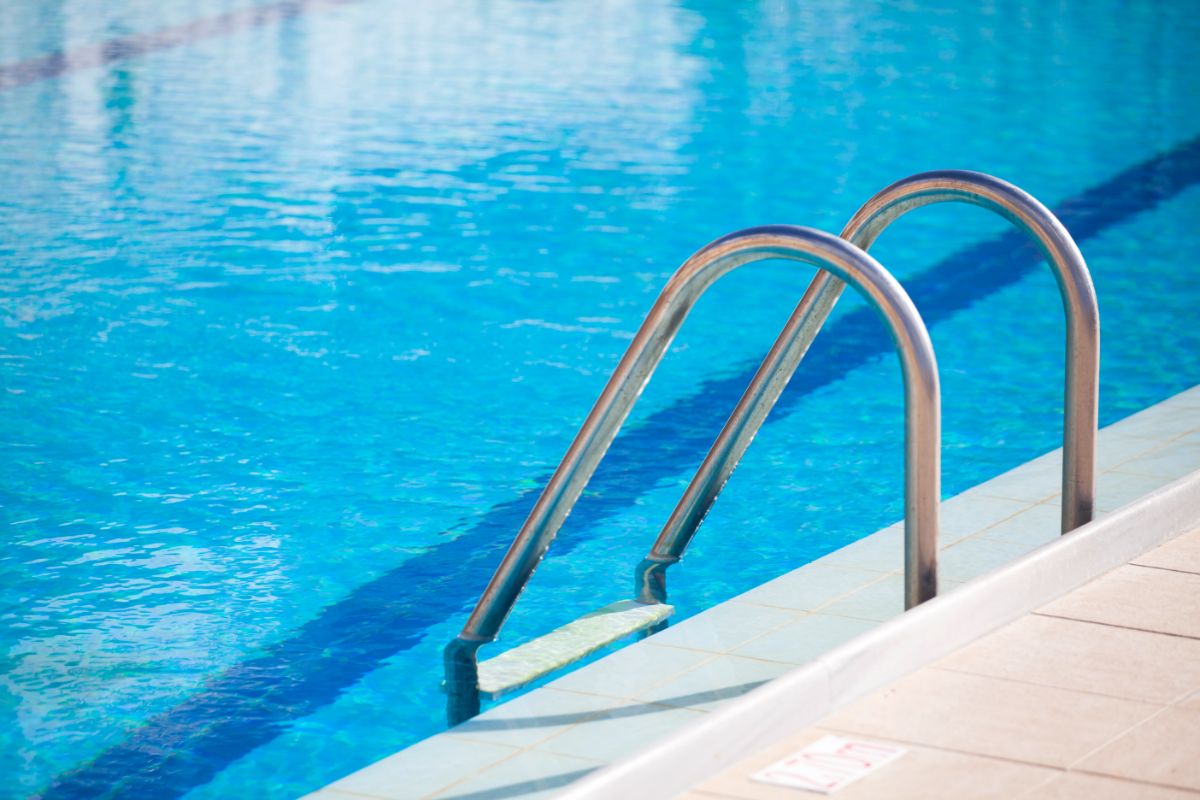
A pool shock is a chemical made from concentrated chlorine granules. This is added to water to raise the chlorine level to kill different contaminants in the water like algae, bacteria, and chloramines.
While daytime is great for enjoying your pool, it’s the wrong time to shock your pool. This is because the sun’s rays can dissolve the chlorine too quickly, making the shock less effective.
That’s why you should shock your pool when the temperature is cooler in the evening. It’s also recommended to do this at least once a week. You can do this more times if you’ve been using the pool more often than usual.
Running Your Pool Filter and Pump System for Less than 8 Hours Daily
Your pool’s filter is responsible for cleaning the dirt from your pool by removing debris and dirt from the water. As it works with the pump, it makes sure the water in your pool is safe and clean by circulating clean water. However, it can’t do its job if it’s not running smoothly.
While running it less may seem like a good idea, it’s not. Inadequate pool filtering leads to more pool problems, such as algae growth and unwanted critters. As a result, it could mean more expensive pool treatments.
No matter what the size of your pool is, most pools function well with an 8-hour pool filtering procedure. It helps the pool water to pass through the filter, keeping your water clearer and balanced. So, do your pool a favor and keep that filter on for at least 8 hours a day.
Ignoring Your Pool’s Calcium Hardness
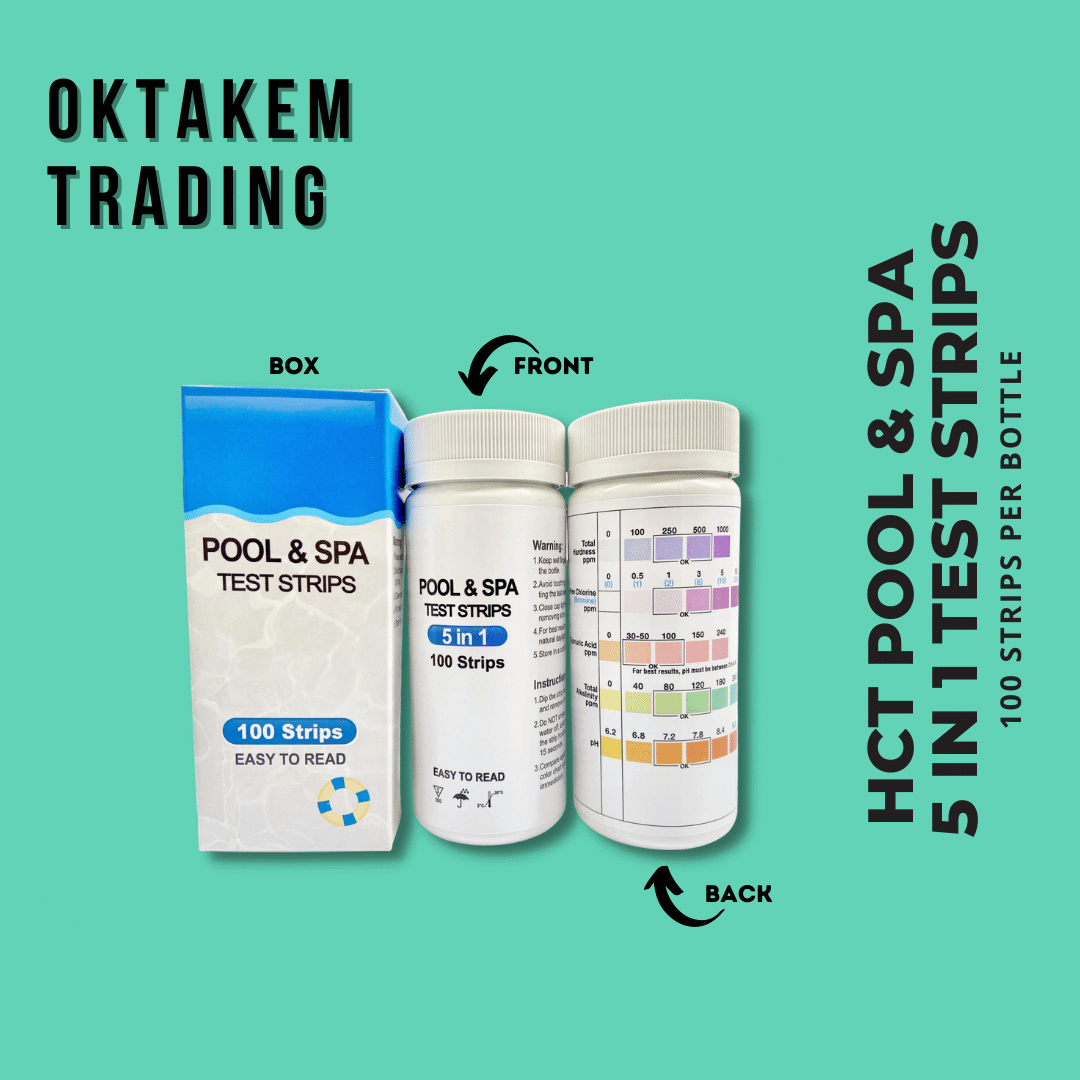
The calcium hardness in your pool refers to how many calcium ions there are in the water. When your pool water’s calcium hardness is high, it results in cloudy water and clogged water. On the other hand, when it is too low, it can dissolve grout and even pit the concrete pool surfaces. That’s why it’s important to never ignore your pool’s calcium hardness levels.
Your pool’s calcium hardness levels should be maintained between 200 ppm and 400 ppm. You can check this money by performing a drop test using HCT Pool and Spa 5-in-1 Test Strips.
Neglecting Your pH and Alkalinity Levels
We often stressed in our blog posts the importance of monitoring your pool’s pH and alkalinity levels. If this is too low, your pool water becomes acidic.
On one hand, it can keep the algae away, but at the same time, it can also damage most of your pool equipment, such as the pool pump and filter, vinyl liner, heater, chemical feeder, maintenance equipment, etc. They can’t be too high as well because it limits the effectiveness of the chlorine, causing bacteria to swim in your pool or skin rashes.
To resolve this, it’s necessary to test the pH level at least twice a week and keep them between 7.2 to 7.8. On the other hand, keep the alkalinity level of your pool between 80 to 120 ppm and test for this at least once a week.
Key Takeaway
To avoid common mistakes when using pool chemicals, it is important to take preventive measures. This ensures that your pool is always safe to swim in, not just immediately after adding chemicals. By implementing these, you can maintain a clean and safe swimming pool for everyone to enjoy.
If you’re searching for the best swimming pool chemical products in the Philippines, look no further than Oktakem Trading! We stock a list of swimming pool chemicals that cater to your swimming pool needs.
You can purchase them on our website, or in our official Shopee, Lazada, and Tiktok accounts! For inquiries, just leave Oktakem Trading a message here!







